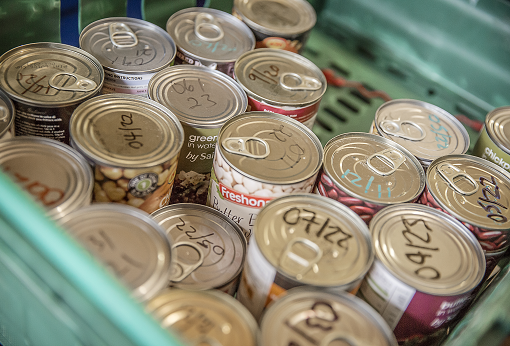YouGov has revealed detailed data about people who donate to food banks, based on its profiling research.
This helps build a picture of the average donor – their age, work status, location, and level of involvement with charitable organisations. As you might expect, food bank donors tend to be involved in charities or community groups.
For example, 26% of food bank donors are current members of a charitable organisation; 44% say they have directly donated money to a charitable organisation in the past 90 days, whereas just 21% of the UK population has done this in the same period.
Comparing the data to national profiles, YouGov Profiles found that those donating food or money to food banks are:
- More likely to be women aged over-55 (32%, versus 20% national representation). 42% of all donors are over-55, and are more likely to be retired (33%, versus 22% nationally).
- Most likely to live in urban areas (67%), but somewhat less likely than the national average of people in urban areas (80%).
- More likely to have donated something to a charity shop in the past 90 days (39%, versus 26% nationally) or bought something from a charity shop (23%, versus 21% nationally).
- More likely to be from a middle income background (36%, versus 33% nationally) than a lower-income (21%, versus 29% nationally) or a higher income background (12%, versus 13% nationally). The statistics on higher income donors indicate there is work to be done in raising awareness, breaking the stigma around food poverty, and gathering donations.
Food banks in Bristol
Several local schemes are connected to Voscur member organisations or are members themselves, and they need donated items and money more than ever, as the coronavirus pandemic has increased the number of people that depend on their services.
- FareShare South West redistributes food from supermarkets, hospitality organisations and suppliers.
- Bristol Food Network has community resources for organisations centred on food, or supporting their community with food issues during the pandemic.
- North Bristol Food Bank has eight outlets across North Bristol and South Gloucestershire.
- North West Bristol Food Bank has outlets in Avonmouth, Henbury, Hotwells and Lawrence Weston. The local crisis prevention fund helpline for this area is 0800 923 0101.
- East Bristol Food Bank has outlets in Fishponds, Kingswood, and St Mark’s, all by appointment only. Deliveries to Bedminster, Southville, Knowle West and Filwood are also available.
If you know someone who needs to access a local food bank or a community organisation providing food, please ask them to call the We Are Bristol helpline on 0800 694 0184. To access the food bank, they need a voucher issued by local care and advice services, such as Bristol City Council, social workers, schools, or care agencies.
